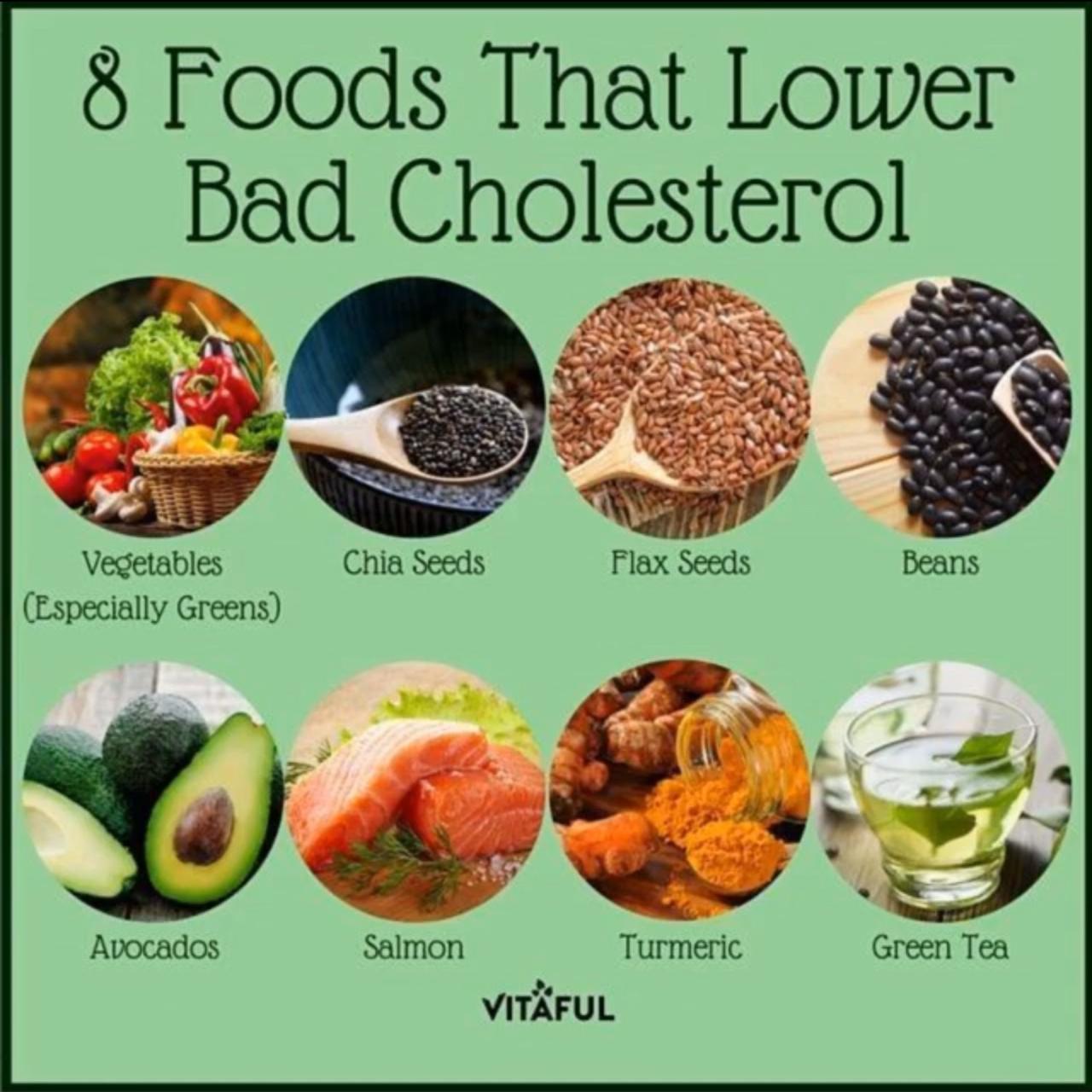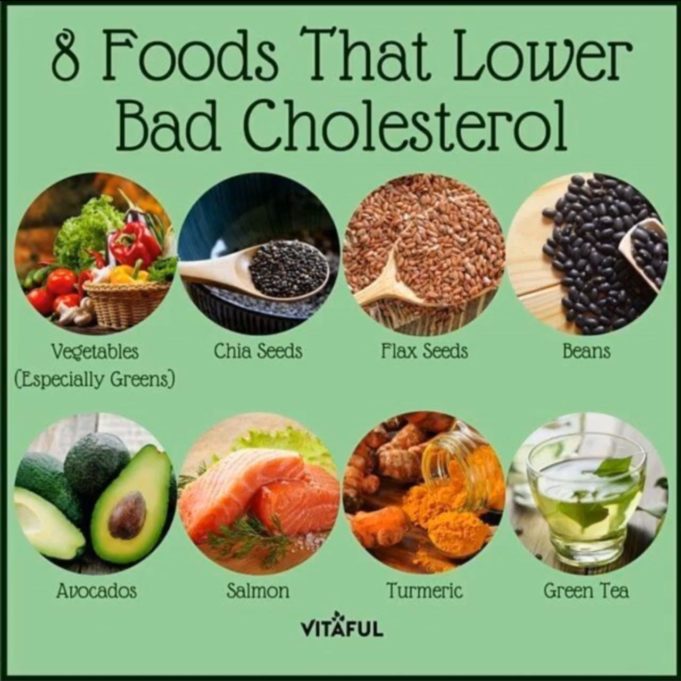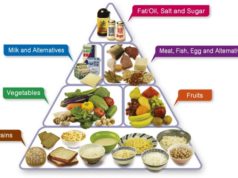How to low cholesterol diet – How to lower cholesterol? It’s a question that has plagued many, but fear not! This journey to better heart health isn’t a boring lecture on bland salads and endless steamed vegetables. It’s a delicious adventure into understanding your body and fueling it with the right ingredients.
Think of it as a culinary quest to outsmart those pesky cholesterol levels and embrace a healthier, happier you.
We’ll explore the ins and outs of cholesterol, unravel the mysteries of good versus bad, and arm you with the knowledge to make smart food choices. We’ll also delve into lifestyle modifications that can make a world of difference, from embracing exercise to conquering stress.
Get ready to ditch the diet dread and embrace a new way of eating that’s both good for your heart and your taste buds.
Understanding Cholesterol
Cholesterol is a waxy, fat-like substance found in your blood. While it may sound scary, cholesterol is actually essential for your body to function properly. It plays a role in building cell membranes, producing hormones, and making vitamin D. However, too much cholesterol can be a problem, leading to health complications.
Types of Cholesterol
Cholesterol comes in two main flavors: good and bad. Think of them like the heroes and villains of your bloodstream.
- High-Density Lipoprotein (HDL): This is the good cholesterol. It acts like a garbage truck, picking up excess cholesterol from your arteries and transporting it back to your liver for disposal. You want your HDL levels to be high!
- Low-Density Lipoprotein (LDL): This is the bad cholesterol. It can build up in your arteries, forming plaque that can restrict blood flow and increase your risk of heart disease. You want your LDL levels to be low.
Health Risks Associated with High Cholesterol
High cholesterol can be a silent threat. It doesn’t always cause noticeable symptoms, but it can lead to serious health problems like:
- Heart disease: High cholesterol contributes to the buildup of plaque in your arteries, which can harden and narrow them, making it harder for blood to flow. This can lead to chest pain (angina), heart attack, or stroke.
- Stroke: If a blood clot forms in a narrowed artery and travels to the brain, it can block blood flow, causing a stroke.
- Peripheral artery disease: This happens when plaque builds up in the arteries of your legs and feet, leading to pain, numbness, or even leg ulcers.
Foods that Contribute to High Cholesterol
While your body naturally produces cholesterol, certain foods can boost your LDL levels. Here are some common culprits:
- Saturated fat: Found in fatty meats (like beef, pork, and lamb), full-fat dairy products (like butter and cheese), and some tropical oils (like coconut oil and palm oil).
- Trans fat: This type of fat is created by adding hydrogen to liquid oils. It’s often found in processed foods, fried foods, and baked goods.
- Cholesterol-rich foods: These include egg yolks, shellfish, and organ meats (like liver).
The Low Cholesterol Diet
This diet focuses on lowering your cholesterol levels, a type of fat found in your blood, to reduce your risk of heart disease. By making smart choices about what you eat, you can help keep your cholesterol in check and protect your heart health.
Foods to Limit or Avoid
It’s important to limit or avoid certain foods that are high in saturated and trans fats, which can raise your cholesterol levels.
Lowering cholesterol? It’s a marathon, not a sprint. You gotta ditch the saturated fats, embrace those heart-healthy omega-3s, and, well, maybe lay off the sugary drinks. Speaking of sugary drinks, you might be wondering if can diet coke actually help.
The answer is a bit complicated, but it’s definitely a step in the right direction! So, keep those veggies and lean protein coming, and you’ll be on the path to a cholesterol-friendly life.
- Saturated Fats: Found in animal products like red meat, poultry with skin, butter, and full-fat dairy. Think of it as the “bad” fat that can clog your arteries.
- Trans Fats: Found in processed foods, fried foods, and baked goods. These are the “worst” fats, as they raise your bad cholesterol and lower your good cholesterol.
- Cholesterol-Rich Foods: These include organ meats like liver, brains, and kidneys, as well as egg yolks. While a whole egg has about 186 milligrams of cholesterol, the yolk is the culprit, containing about 140 milligrams. So, if you’re watching your cholesterol, it’s best to limit egg yolks or go for egg whites instead.
Sample Meal Plan
Here’s a sample meal plan that incorporates the principles of a low-cholesterol diet. Remember, this is just a guideline, and your individual needs may vary. It’s always best to consult with a registered dietitian or your healthcare provider to create a personalized plan that’s right for you.
Breakfast
- Oatmeal with berries and a sprinkle of nuts
- Whole-wheat toast with avocado and a poached egg white
- Greek yogurt with fruit and granola
Lunch
- Grilled salmon with quinoa and roasted vegetables
- Lentil soup with a side of whole-wheat bread
- Turkey lettuce wraps with hummus and veggies
Dinner
- Baked chicken breast with brown rice and steamed broccoli
- Vegetarian chili with black beans and corn
- Spaghetti squash with marinara sauce and lean ground turkey
Snacks
- Fresh fruit
- Raw vegetables with hummus
- Trail mix with nuts and seeds
Food Choices for Lowering Cholesterol

Making smart food choices is the cornerstone of a low-cholesterol diet. This means focusing on foods that help lower your LDL (bad) cholesterol and raise your HDL (good) cholesterol, while limiting those that contribute to high cholesterol levels. Let’s dive into the delicious world of cholesterol-friendly eating!
Foods to Include and Limit for Lower Cholesterol
This table Artikels the key food groups and their impact on your cholesterol levels. It’s a simple guide to help you navigate your grocery list and make informed choices.
| Food Group | Foods to Include | Foods to Limit | Benefits for Cholesterol |
|---|---|---|---|
| Fruits and Vegetables | Apples, bananas, berries, broccoli, carrots, leafy greens, oranges, pears, sweet potatoes | Avoid excessive amounts of fruit juices, as they can be high in sugar | Rich in fiber, vitamins, and antioxidants, which can help lower LDL cholesterol and improve overall heart health. |
| Whole Grains | Brown rice, quinoa, oats, whole-wheat bread, barley, popcorn | White bread, white rice, refined grains | Packed with fiber, which helps lower LDL cholesterol and regulate blood sugar levels. |
| Lean Protein | Chicken (without skin), fish (salmon, tuna, mackerel), beans, lentils, tofu, eggs (in moderation) | Red meat, processed meats, fatty cuts of meat | Provides essential protein without adding excess saturated fat, which can contribute to high cholesterol. |
| Healthy Fats | Olive oil, avocado, nuts (almonds, walnuts, pecans), seeds (chia, flax, sunflower), fatty fish | Butter, margarine, fried foods, processed foods high in saturated and trans fats | Unsaturated fats, like those found in olive oil and avocados, can help lower LDL cholesterol and raise HDL cholesterol. |
| Dairy | Low-fat or fat-free milk, yogurt, cheese (in moderation) | Full-fat dairy products, cream, cheese (high-fat varieties) | Dairy products provide calcium and vitamin D, but choosing low-fat options can help reduce saturated fat intake. |
Healthy Fats: Your Cholesterol Allies
Remember those “good fats” we mentioned? They’re not just delicious, they’re actually beneficial for lowering cholesterol. Here’s a breakdown of some of the stars:* Monounsaturated Fats:Think olive oil, avocados, and nuts. These fats help lower LDL cholesterol and raise HDL cholesterol, which is like a cholesterol-clearing crew for your arteries.
Lowering your cholesterol doesn’t have to be a chore! Sure, you can swap out that greasy bacon for some lean protein, but don’t forget to explore the world of healthy fats, like avocados and nuts. And if you’re looking to shed some pounds too, check out this guide to the best diet for weight loss.
Remember, a healthy heart and a trim figure go hand in hand, so let’s get cookin’!
Polyunsaturated Fats
Found in fatty fish like salmon, tuna, and mackerel, these fats are packed with omega-3 fatty acids, which are known for their heart-healthy benefits.
Omega-3 Fatty Acids
These fats are superstars when it comes to lowering cholesterol and reducing inflammation. Aim for two servings of fatty fish per week.
The Role of Fiber in a Low Cholesterol Diet
Fiber is your cholesterol-fighting champion. It’s like a tiny vacuum cleaner, sweeping up excess cholesterol in your gut and preventing it from entering your bloodstream. * Soluble Fiber:This type of fiber dissolves in water and forms a gel-like substance in your digestive system, which helps bind cholesterol and remove it from your body.
Insoluble Fiber
While it doesn’t directly lower cholesterol, insoluble fiber helps regulate digestion and promotes regularity, which is important for overall health. To get your daily dose of fiber, load up on fruits, vegetables, whole grains, and legumes.
Lifestyle Modifications: How To Low Cholesterol Diet
So you’ve tackled the food front, but remember, a healthy heart is a team effort. Your lifestyle plays a crucial role in keeping cholesterol in check, and we’re not talking about just ditching the late-night pizza parties (although, that’s a good start).
Let’s dive into some lifestyle tweaks that can make a world of difference.
Regular Exercise
Think of exercise as your cholesterol’s arch-nemesis. It’s like a superhero in a spandex suit, swooping in to save the day. Regular physical activity helps lower LDL (the bad cholesterol) and boost HDL (the good cholesterol). The more you move, the more your body uses cholesterol for energy, and the less it hangs around in your bloodstream.
But how much exercise is enough? Aim for at least 30 minutes of moderate-intensity activity most days of the week. Think brisk walking, jogging, swimming, or dancing. You can even break it up into 10-minute chunks throughout the day.
Get creative and find something you enjoy so you’re more likely to stick with it.
Managing Stress, How to low cholesterol diet
Stress can be a sneaky saboteur, messing with your cholesterol levels. When you’re stressed, your body releases hormones that can raise LDL and lower HDL. It’s a vicious cycle: high cholesterol increases your risk of heart disease, and heart disease can cause stress! So, it’s important to find ways to manage stress in your life.
Here are a few tips:
- Practice relaxation techniques like deep breathing, meditation, or yoga.
- Get enough sleep. When you’re sleep-deprived, your body produces more stress hormones.
- Spend time in nature. Studies show that being in nature can help reduce stress and improve mood.
- Connect with loved ones. Social support is a powerful stress-buster.
Healthy Habits
You know the drill: healthy habits are the foundation of a healthy life. Here’s a list of everyday actions that can make a big difference for your cholesterol:
- Quit smoking. Smoking damages blood vessels and increases LDL cholesterol.
- Limit alcohol intake. Excessive alcohol consumption can raise LDL and lower HDL.
- Get regular checkups. Talk to your doctor about your cholesterol levels and discuss any concerns you have.
- Stay hydrated. Water helps flush out toxins and keeps your body functioning optimally.
- Eat a balanced diet. Focus on fruits, vegetables, whole grains, and lean protein.
Medical Advice and Monitoring
You’ve done the hard work – you’ve learned about cholesterol, embraced a low-cholesterol diet, and made positive lifestyle changes. But just like a good detective story, the investigation doesn’t end here. It’s time to bring in the experts: your healthcare professionals.
Consulting a Healthcare Professional
The journey to healthy cholesterol levels is unique to each individual. That’s why consulting a healthcare professional is essential. Think of them as your personal cholesterol detectives, equipped with the knowledge and tools to guide you. They can:
- Assess your individual risk factors:Your doctor will consider your family history, age, existing health conditions, and lifestyle habits to determine your unique cholesterol profile.
- Develop a personalized plan:Based on your risk factors, they can create a tailored plan that might involve dietary changes, exercise recommendations, and even medication, if needed.
- Monitor your progress:Regular check-ups and blood tests will help track your cholesterol levels and adjust your plan as needed. This way, you’re always on the right track, like a detective closing in on the case!
Cholesterol-Lowering Medications
Sometimes, even with a healthy lifestyle, some folks need an extra helping hand to lower their cholesterol. That’s where cholesterol-lowering medications come in, like the trusty sidekick to our cholesterol detectives. These medications work in various ways, such as:
- Statins:These are the most common type of cholesterol-lowering medication. They block an enzyme in the liver that helps make cholesterol, effectively reducing its production. Think of them as the “cholesterol blockers” in your body.
- Bile acid sequestrants:These medications bind to bile acids in the gut, preventing their reabsorption into the bloodstream. This forces the liver to use more cholesterol to make new bile acids, lowering cholesterol levels. They’re like the “cholesterol catchers” in your digestive system.
- Niacin:This vitamin, also known as vitamin B3, helps lower both LDL (“bad”) and triglyceride levels, while increasing HDL (“good”) cholesterol. It’s like the “cholesterol multi-tasker”!
- Fibrates:These medications help lower triglycerides and raise HDL levels. They’re like the “cholesterol balance specialists” in your body.
It’s crucial to remember that these medications should only be taken under the guidance of a healthcare professional. They can assess your individual needs and ensure you’re getting the right medication and dosage.
Monitoring Cholesterol Levels
Regular monitoring is key to keeping your cholesterol levels in check. It’s like checking in with your detective team to see how the investigation is progressing. Here’s how it works:
- Frequency:The frequency of cholesterol checks depends on your individual risk factors and overall health. Your doctor will advise you on the appropriate schedule, which might be anywhere from once a year to more frequently if needed. Think of it as your cholesterol checkup schedule, ensuring you’re always on top of things.
- Methods:Cholesterol levels are typically measured through a simple blood test. You’ll fast for 9-12 hours before the test, giving your body a chance to “rest” and provide accurate results. This is like the “cholesterol investigation” where your body gives its best evidence.Lowering cholesterol can feel like a chore, but it doesn’t have to be a total drag. Just remember to ditch the greasy stuff and load up on fruits, veggies, and whole grains. And for those of you who are really serious about your cholesterol levels, you might want to check out this awesome resource on Keywords related to healthy eating.
It’s full of tips and tricks to help you make the right choices and keep your cholesterol in check.
Concluding Remarks
By understanding cholesterol, making mindful food choices, and embracing healthy habits, you can take control of your heart health. Remember, lowering cholesterol isn’t about deprivation; it’s about enriching your life with delicious, heart-healthy options. So, grab your metaphorical fork and join us on this journey to a healthier you!
FAQ Corner
Can I lower my cholesterol without medication?
Absolutely! Lifestyle changes like diet and exercise can significantly lower cholesterol levels. However, it’s crucial to consult a doctor for personalized advice and to determine if medication is necessary.
What are some quick and easy low-cholesterol snacks?
Fresh fruits, vegetables, nuts, and yogurt are excellent low-cholesterol snacks. Opt for unsalted nuts and low-fat yogurt for optimal heart health.
Can I still enjoy my favorite foods on a low-cholesterol diet?
Moderation is key! You can still enjoy your favorite foods, but focus on healthy alternatives and limit portion sizes. For example, opt for lean meats, baked instead of fried foods, and use heart-healthy oils like olive oil.
How often should I check my cholesterol levels?
Frequency of cholesterol checks depends on your individual risk factors and doctor’s recommendations. Generally, adults should have their cholesterol checked every 4-6 years.
























